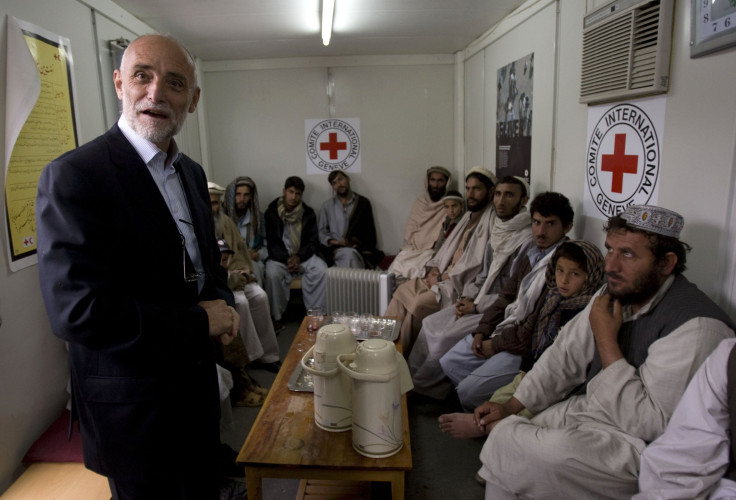Militants Attack Red Cross Office In Afghanistan With Guns, Suicide Bomber, Killing A Guard

Militants using guns and a suicide bomber attacked an office of the Red Cross in the city of Jalalabad in eastern Afghanistan on Wednesday afternoon, killing an Afghan security guard, in the second such incident in five days targeting an international aid agency.
One of the attackers blew himself up at the entrance of the guest house used by the International Committee of the Red Cross, or ICRC, while two other gunmen stormed the building and engaged the guards in a gun battle, AP reported, citing Afghan officials.
“Attackers infiltrated the office. Seven (ICRC) foreigners were evacuated, one hurt in the leg,” Sediq Sediqqi, spokesman for the interior ministry, told AFP.
Earlier in the day, seven Taliban militants in police uniforms and suicide vests had targeted the governor’s office in Panjshir province, north of Kabul, known to be one of Afghanistan’s more peaceful regions.
All seven insurgents who carried out the attack were killed, officials said.
Last Friday, Taliban militants attacked a compound used by the International Organization for Migration, a U.N.-affiliated group currently operating in Afghanistan. The attack killed an Afghan policeman, two civilians and all four insurgents.
ICRC strongly condemned the attack on its office and offered condolences to the family of the guard who was killed. The organization has some 36 staff, including six expatriates, working in its Jalalabad office and a total of some 1,800 staff working in 17 Afghan locations, on a range of projects.
Their work includes assisting people wounded in the war and protecting detainees in Afghan jails and helping them maintain contact with their families. The organization has remained strictly neutral in carrying out humanitarian work and has itself not been an insurgent target since 1987, when it began its Afghan operations, according to its website.
However, in March 2003, an ICRC worker, Ricardo Munguia, was murdered, which was followed by a wave of attacks on Afghans associated with international organizations. Last month, militants killed two staff members of the Afghan Red Crescent Society (ARCS), the local chapter of ICRC, forcing the group to suspend its work in northern Afghanistan.
There was no immediate claim of responsibility for Wednesday’s attack, which came days after Gherardo Pontrandolfi, ICRC's Kabul team head, said the mission will not leave the country even after NATO-led coalition troops pull out of the country next year, unless the region becomes “totally hostile.”
He made the remarks on a visit to India last week, adding that he was “positive and confident that the situation will not turn hostile against” the organization because it remained “impartial” and worked “with the agreement of all parties.”
© Copyright IBTimes 2024. All rights reserved.












